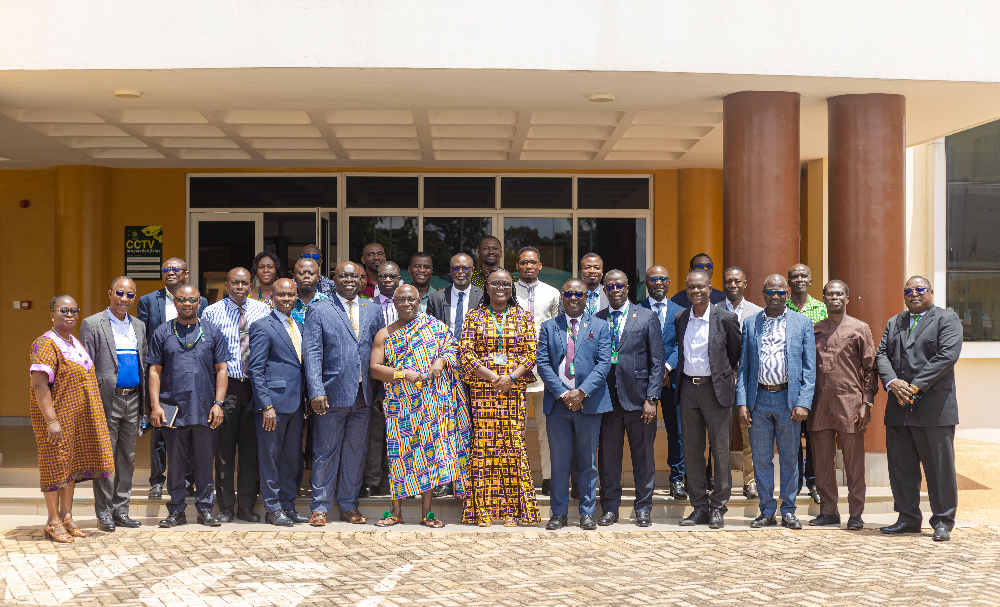The Chairman of the Governing Council of the Kwame Nkrumah University of Science and Technology (KNUST), Kumasi, Akyamfour Asafo Boakye Agyemang-Bonsu, has called for the institution to be positioned as the global centre for Asante Cultural Studies.
Speaking during his engagement with the College board of the College of Humanities and Social Sciences, as part of his ongoing working visit to the various colleges, the Council Chair emphasized the importance of leveraging KNUST's historical and geographical position in the Ashanti Region to advance cultural scholarship and development.
“We need to preserve our heritage. There are a lot of opportunities in that. A lot of the chieftaincy disputes in the country stem from hearsay and undocumented traditions. Proper documentation and academic research can help resolve many of these conflicts,” he said.
He argued that making KNUST the epicenter of Asante cultural research would not only help preserve Ghana’s intangible heritage but also open up revenue-generating opportunities.
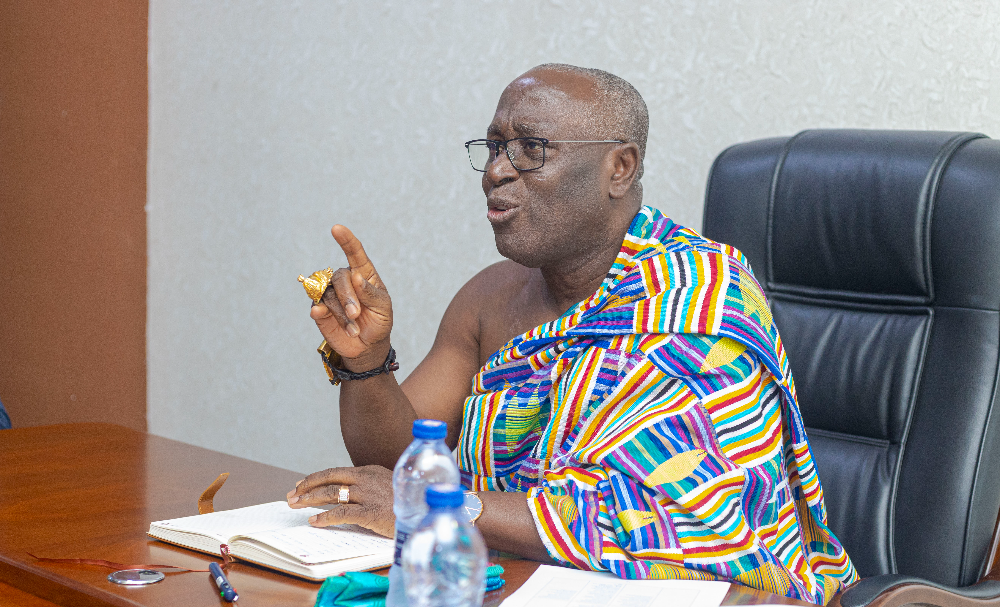
The visit, which has so far covered five of the six colleges, included strategic discussions with academic leadership.
To support data-driven development in the Ashanti Region, he proposed that the university develop a Social Accounting Matrix (SAM), a comprehensive economic database that could inform regional planning and policy.
“If you want to promote development, you better be informed. We need quality data to make strategic decisions,” he added.
Pushing for interdisciplinary collaboration, Akyamfour Asafo Boakye urged the College of Humanities and Social Sciences to partner with the College of Engineering to develop a proposed mobile application that translates oral Twi into English which can come in handy for Ghana's justice system.
While he commended the Centre for Cultural and African Studies (CeCaST) for its research contributions, he emphasized the need for broader departmental collaboration to reduce teaching burdens and enhance the Centre’s impact.
He also raised concerns about aspects of the current legal framework governing the university, advocating for a review of the statutes that established KNUST.
“For proper administration of the University, we need systems that reflect the times. Leadership should involve expertise from faculties such as Law,” he suggested.
Members of the academic board responded by highlighting ongoing work in relevant areas. They noted, for instance, that a PhD student is conducting research on court discourse in Akan, aligning closely with the Council Chair’s advocacy for linguistic and cultural documentation.
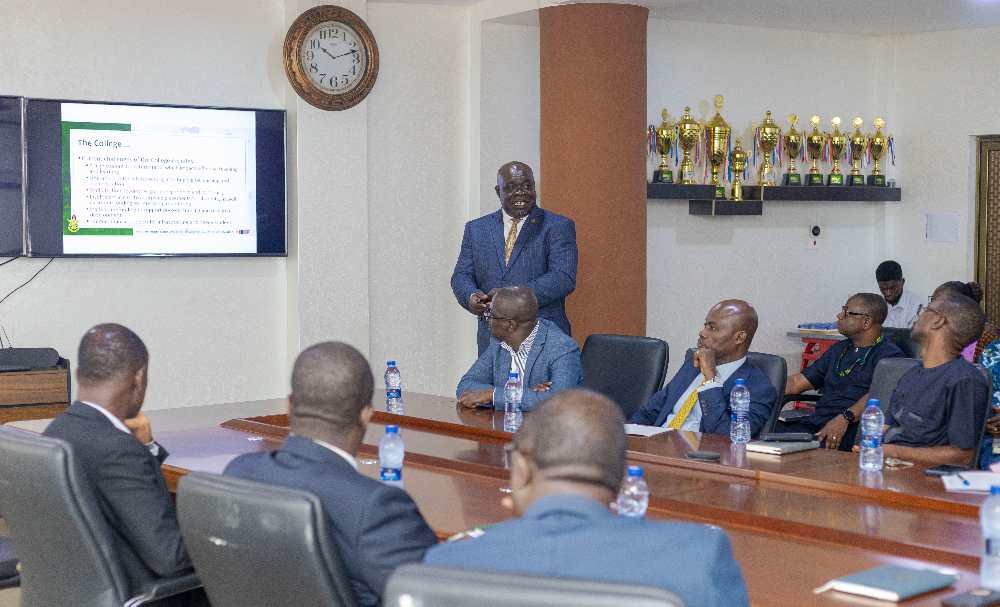
Speaking to the College’s academic direction, Prof. Charles Marfo, Provost of the College of Humanities and Social Sciences, outlined a strategic vision built around several key pillars.
These include entrepreneurial education and youth empowerment to address unemployment, enhanced digital readiness for the Fourth Industrial Revolution, and the integration of sustainability and Environmental, Social, and Governance (ESG) principles across academic programmes. He also stressed efforts to empower students, improve career readiness, and invest in human capital development.
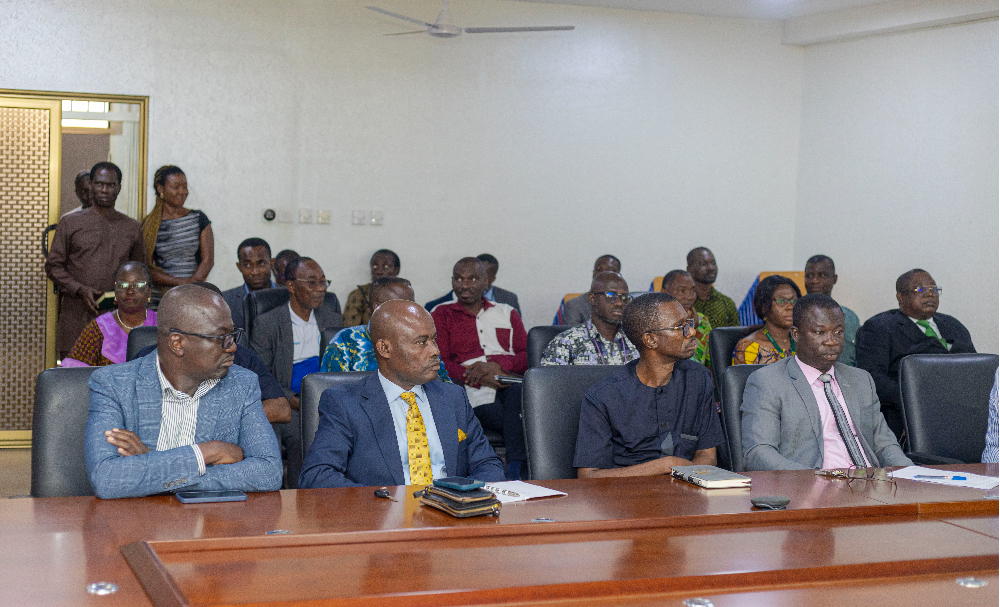
Prof. Ahmed Agyapong, Dean of the KNUST School of Business, also contributed to the conversation by sharing how the School is mainstreaming climate change awareness and action into its academic offerings. He emphasized the role of future business leaders in tackling environmental challenges.
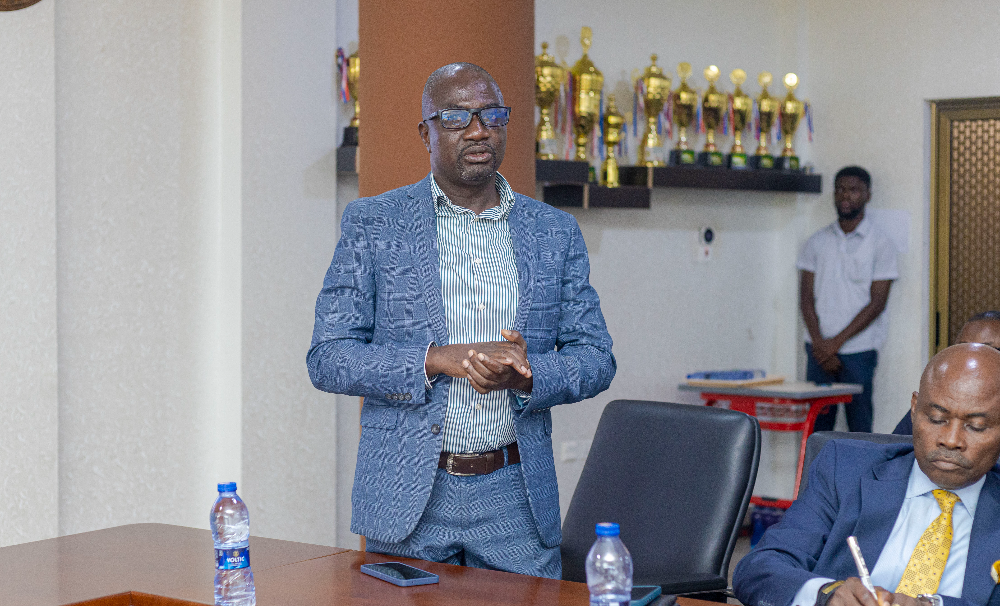
On this front, Vice-Chancellor Prof. Mrs. Rita Akosua Dickson reaffirmed the university’s commitment to renewable energy, noting that each college now has a dedicated budget line for solar energy initiatives due to the high cost of electricity from the national grid.
“Solar energy is something we’re intentionally working on. It’s high on the agenda, but admittedly expensive,” she said.
In response, the Council Chair encouraged the university to develop a comprehensive solar energy project proposal and explore climate finance mechanisms for support. He also called for cross-departmental collaboration to develop innovative research projects capable of attracting grants and international partnerships, especially in areas intersecting with sustainability and regional development.
Wrapping up the visit, Akyamfour Asafo Boakye Agyemang-Bonsu urged the College leadership to ensure that their strategic plans align with the overall development agenda of the university. Prof. Marfo thanked the Council Chair for his insights and pledged to integrate the recommendations into the College’s future direction.








